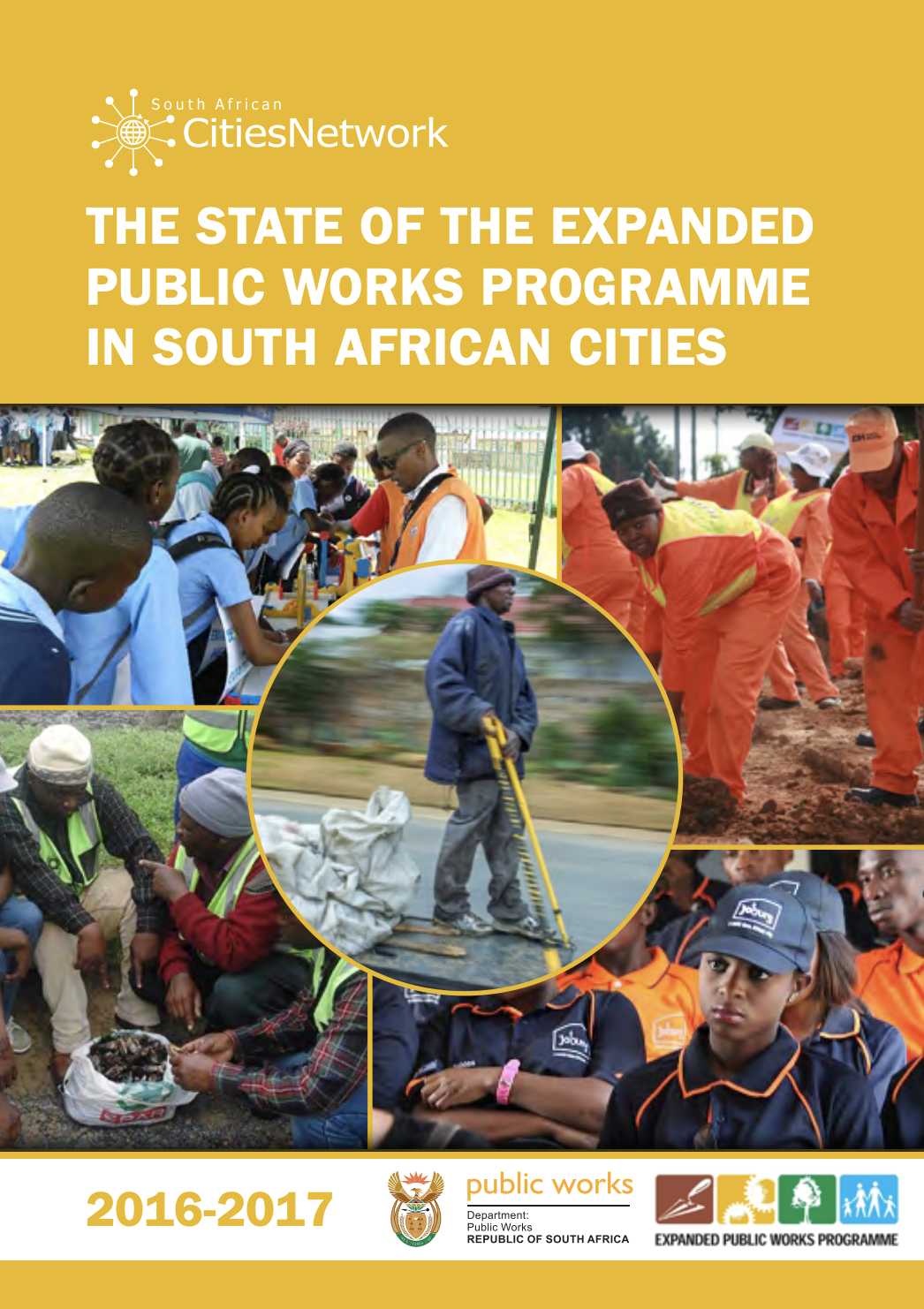The State of the Expanded Public Works Programme in South African Cities
Annual Report for 2016-2017

03 July 2017
Geci Karuri-Sebina, Ignatius Ariyo
English
Report
Africa
The South African Cities Network (SACN) was established in 2002 as a learning network of South Africa’s largest cities and their key partners. It encourages the exchange of information, experience and best practices on urban development and city management. The SACN’s objectives are to promote good governance and management in South African cities; • identify and address the strategic challenges facing South African cities; • collect, collate, analyse, assess, disseminate and apply the experience of large-city government in a South African context; and • encourage shared-learning partnerships among the various actors in order to enhance good governance of South African cities.
The SACN’s core members are eight of South Africa’s largest cities: Buffalo City, Ekurhuleni, eThekwini, Johannesburg, Mangaung, Msunduzi, Nelson Mandela and Tshwane, although the report also includes the City of Cape Town. These cities collectively occupy 1.7% of the country’s land area (approximately 21 828 km2), and are home to about 40% of South Africa’s population (based on 2017 data). The State of the Expanded Public Works Programme in South African Cities Report 2016/17 is the seventh publication in the series of reports produced by the SACN. The report outlines the progress and implementation of the EPWP by the cities in 2016/17, which was the third year of Phase III of the EPWP. The main body of the report gives an overview of EPWP Phase III targets, institutional arrangements, implementation, and challenges faced. This is followed by individual city reports (Part III) that focus on the progress made and key successes in implementing the EPWP. Part IV describes some best-practice case.



Comments